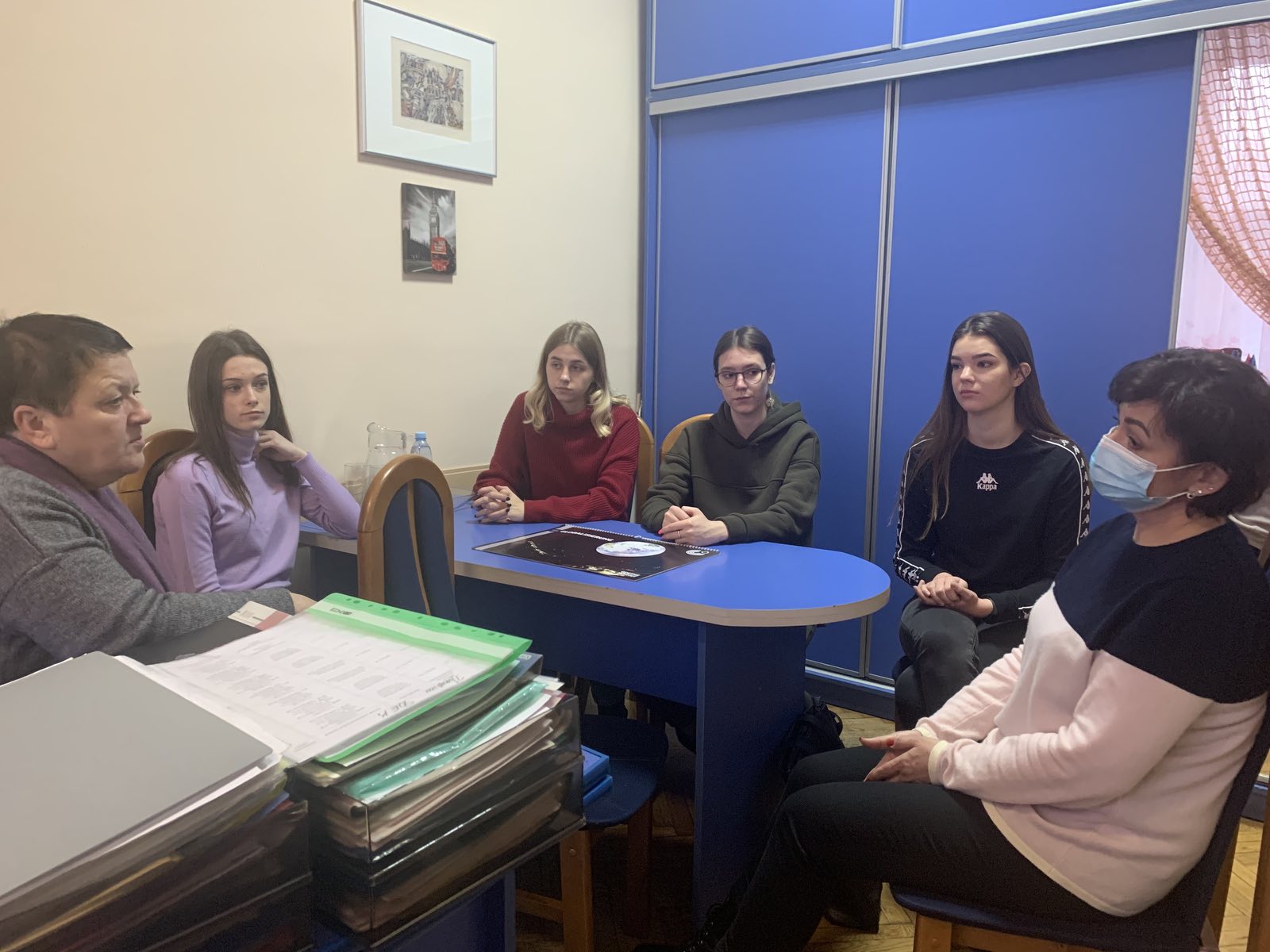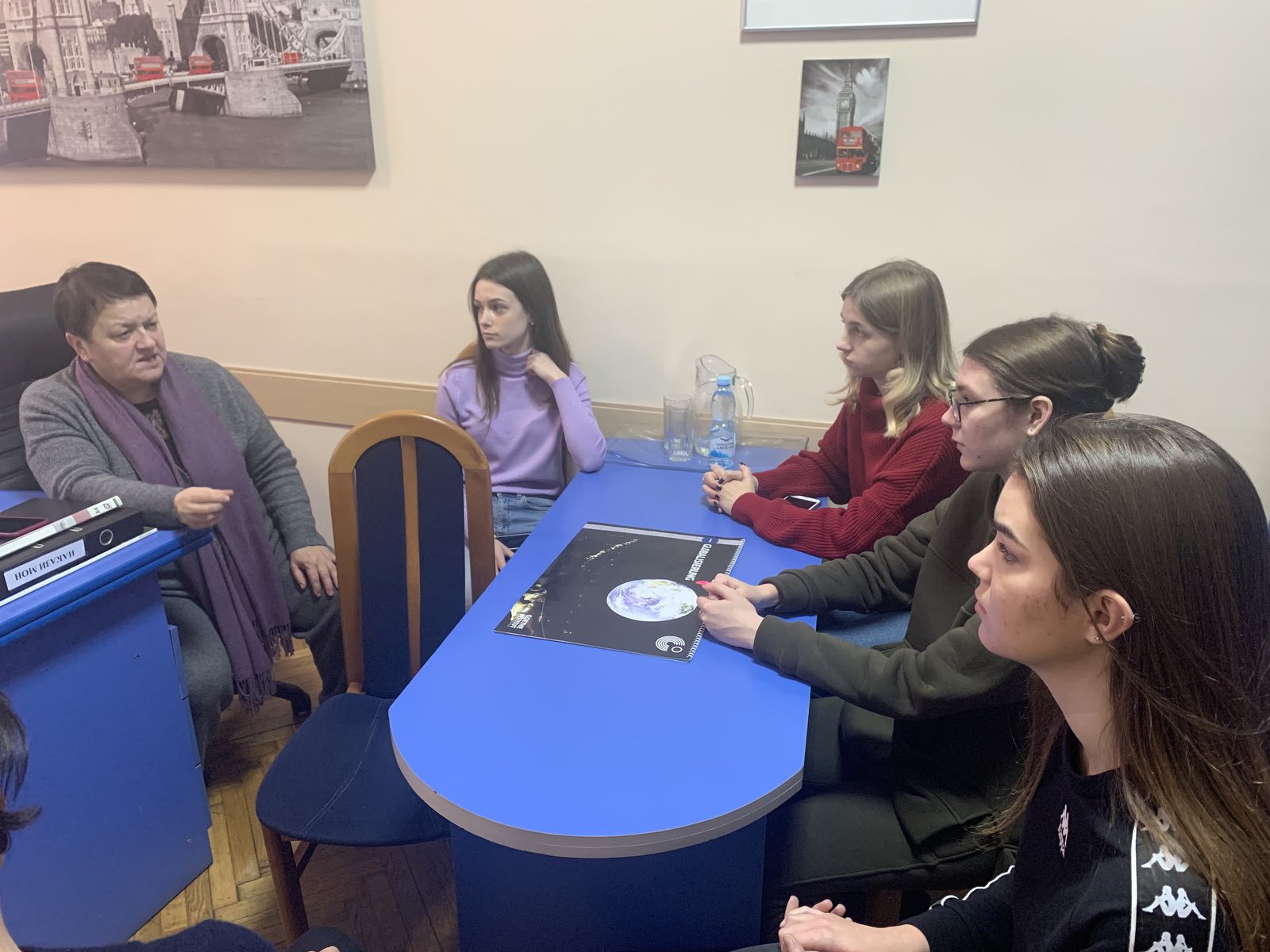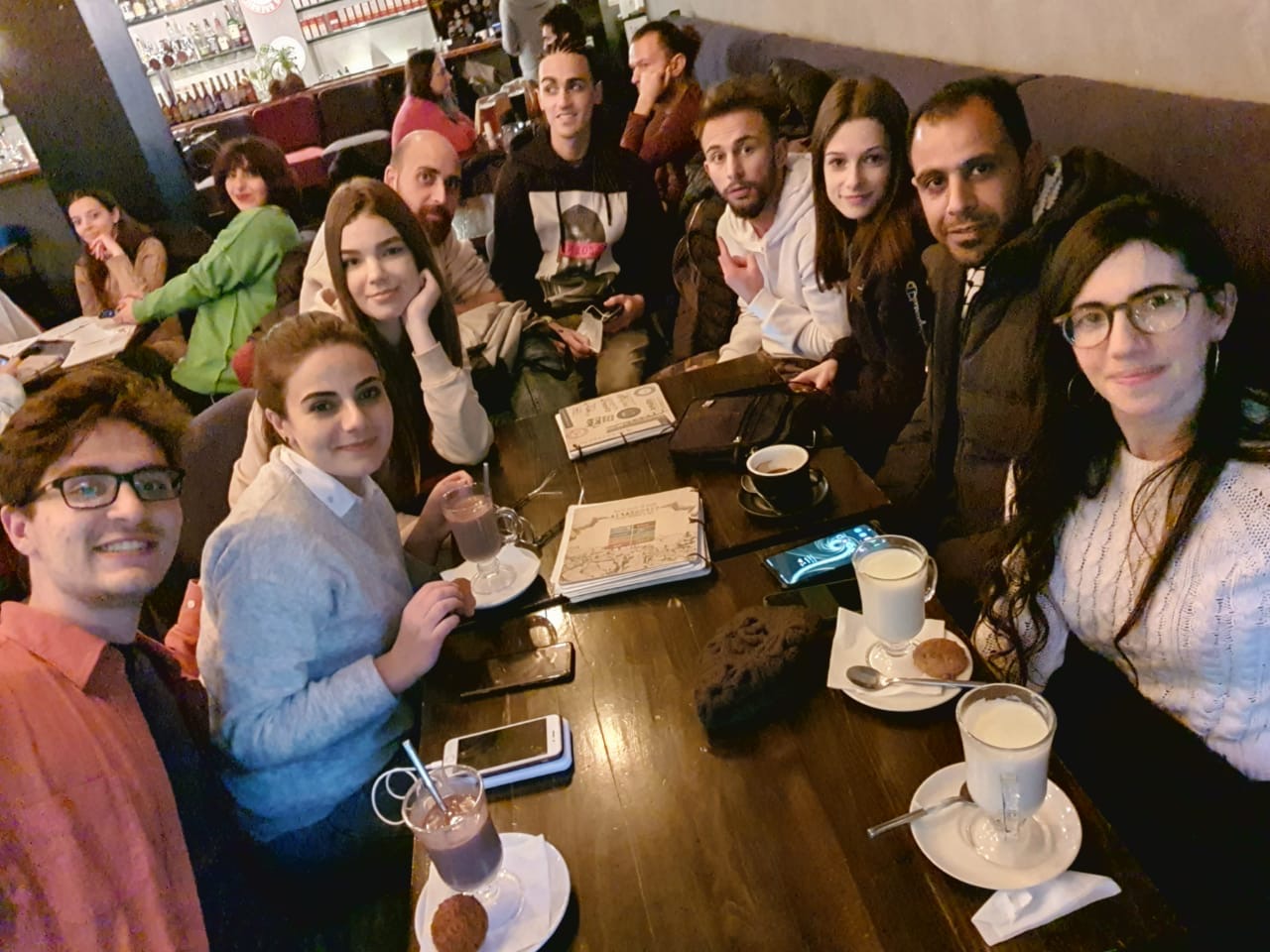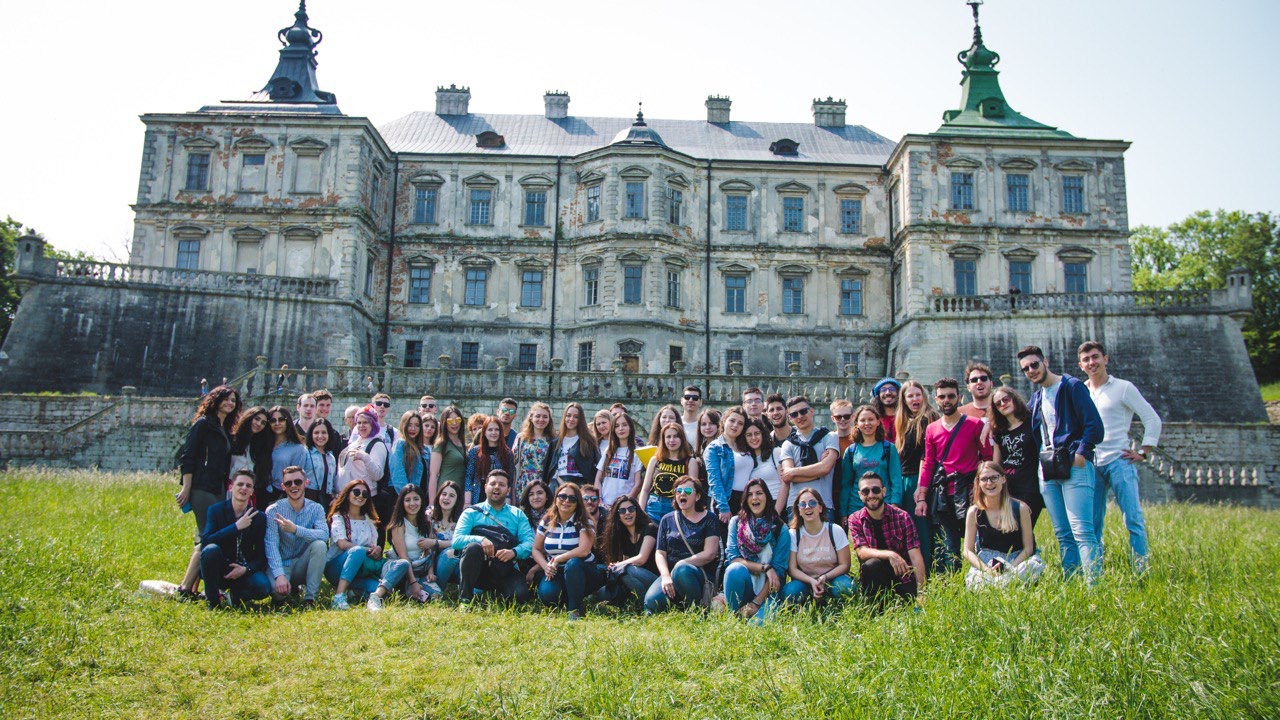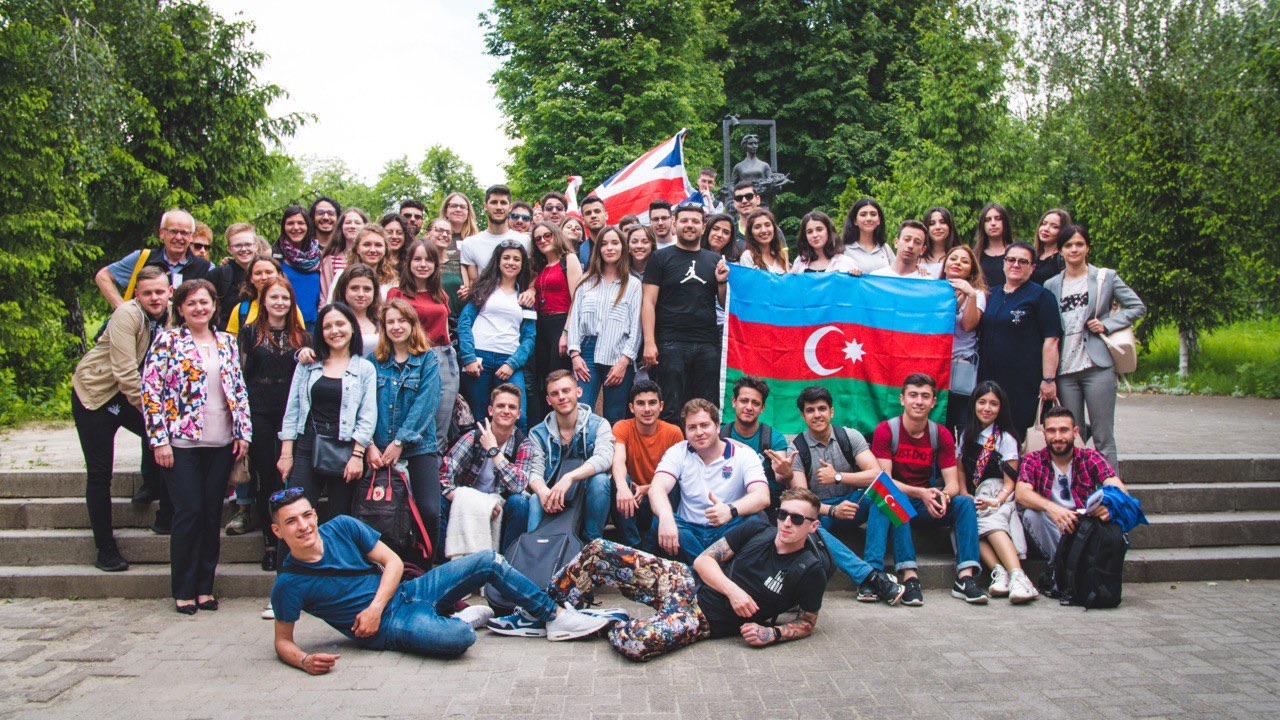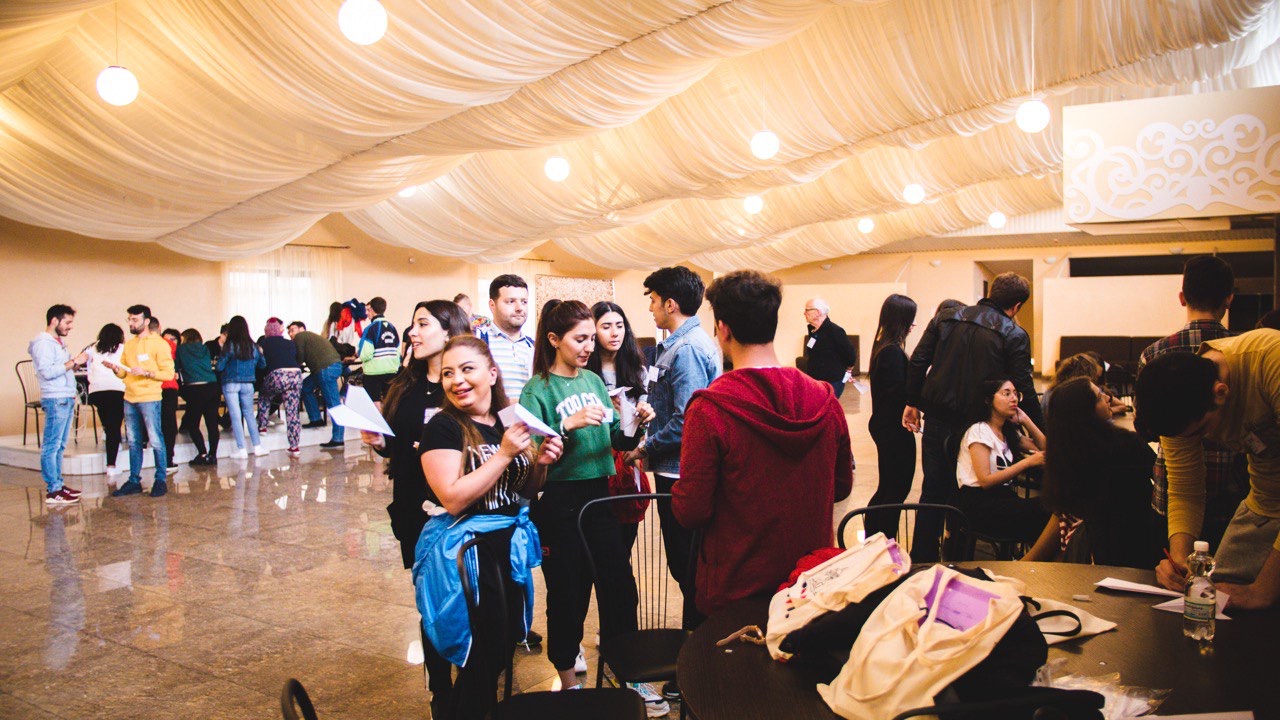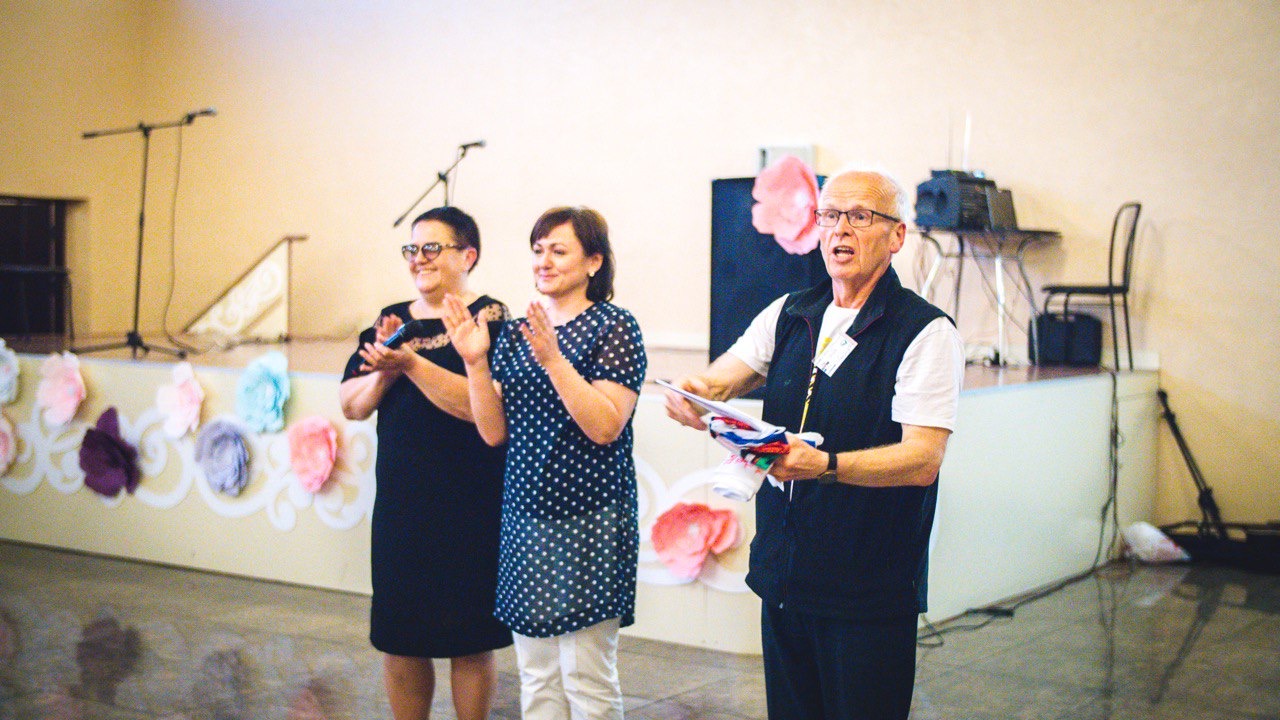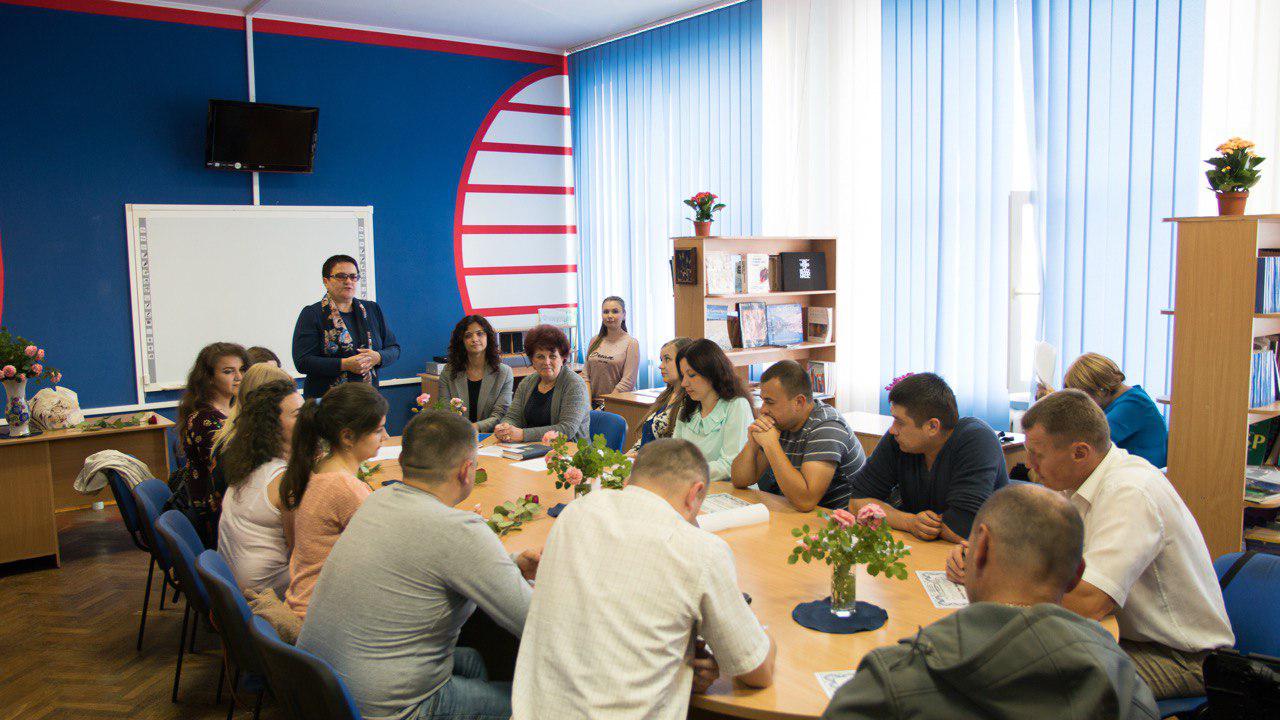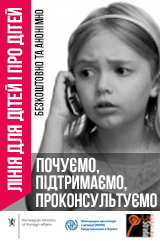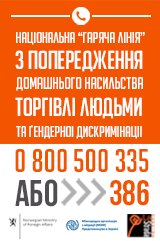The meeting of the BRIDGES training was organized in the university on the initiative of the Head of the Association of School Partners, Halyna Nikolaychuk, the Dean of the Philological Faculty. The students, which retured from Romania, shared their plans, ideas and inspirations of the further fruitful work in the project on the basis of the community in Rivne.
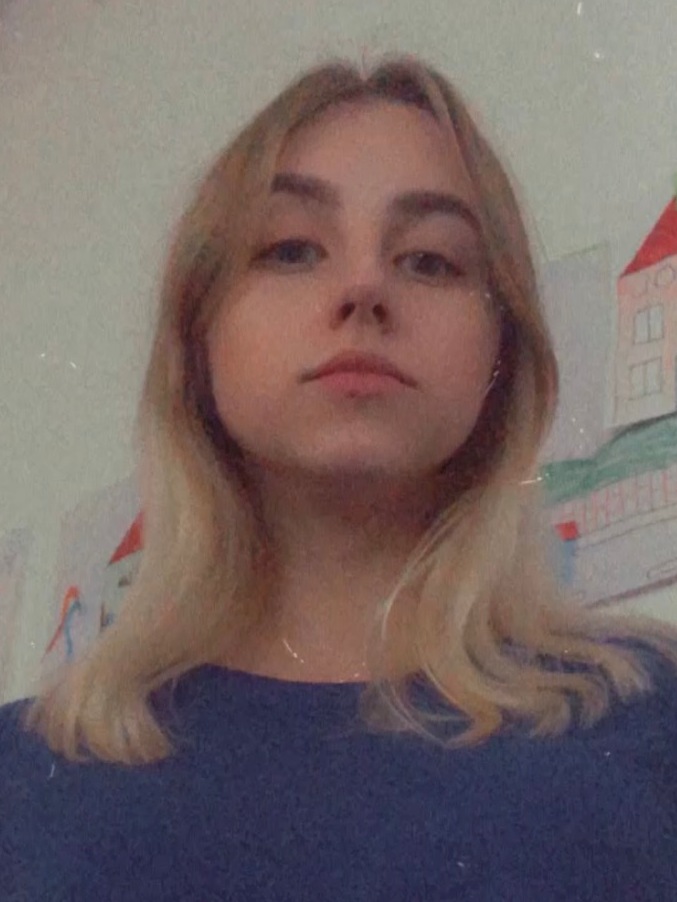 Oleksandra Kostiuk:
Oleksandra Kostiuk:
On the first day of the project training, all participants were divided into teams. Each team had representatives from different countries and it let to know each other better. We could feel support if someone had misunderstanding and of course great motivation because there were people with some solid experience which they shared with other participants. All that inspire to develop our own ideas and problem solutions. Every day, we played “Top 10”. This game was meant to show all the groups their results recording the points for different activities during the day. Also, during the session, each team made projects and discussed suggested topics or problems. At the end of the project, we prepared videos to recognize some problems. We found out a lot of new information and learned team collaboration.
 Anastasiia Sydenko:
Anastasiia Sydenko:
On the penultimate day of our project we went on a tour. The first stop of our trip was Bran Castle. Bran Castle is the only castle in all of Transylvania that actually fits Bram Stoker’s description of Dracula’s Castle, thus, it is known throughout the world as Dracula’s Castle. Its hidden passages, narrow staircases, and haunted atmosphere really impressed us. We discovered and experienced the true history, the myth, the intrigue and the magic of this wonderful place in Romania. After that we went to the beautiful city of Brasov. First we had a tour of the city, where we learned more about the history of Romania and interesting facts about Brasov. And at the end of our busy day we had some free time when we could do what we wanted: to walk, take photos, shop, eat in cafes, and the like. It was a truly memorable day!
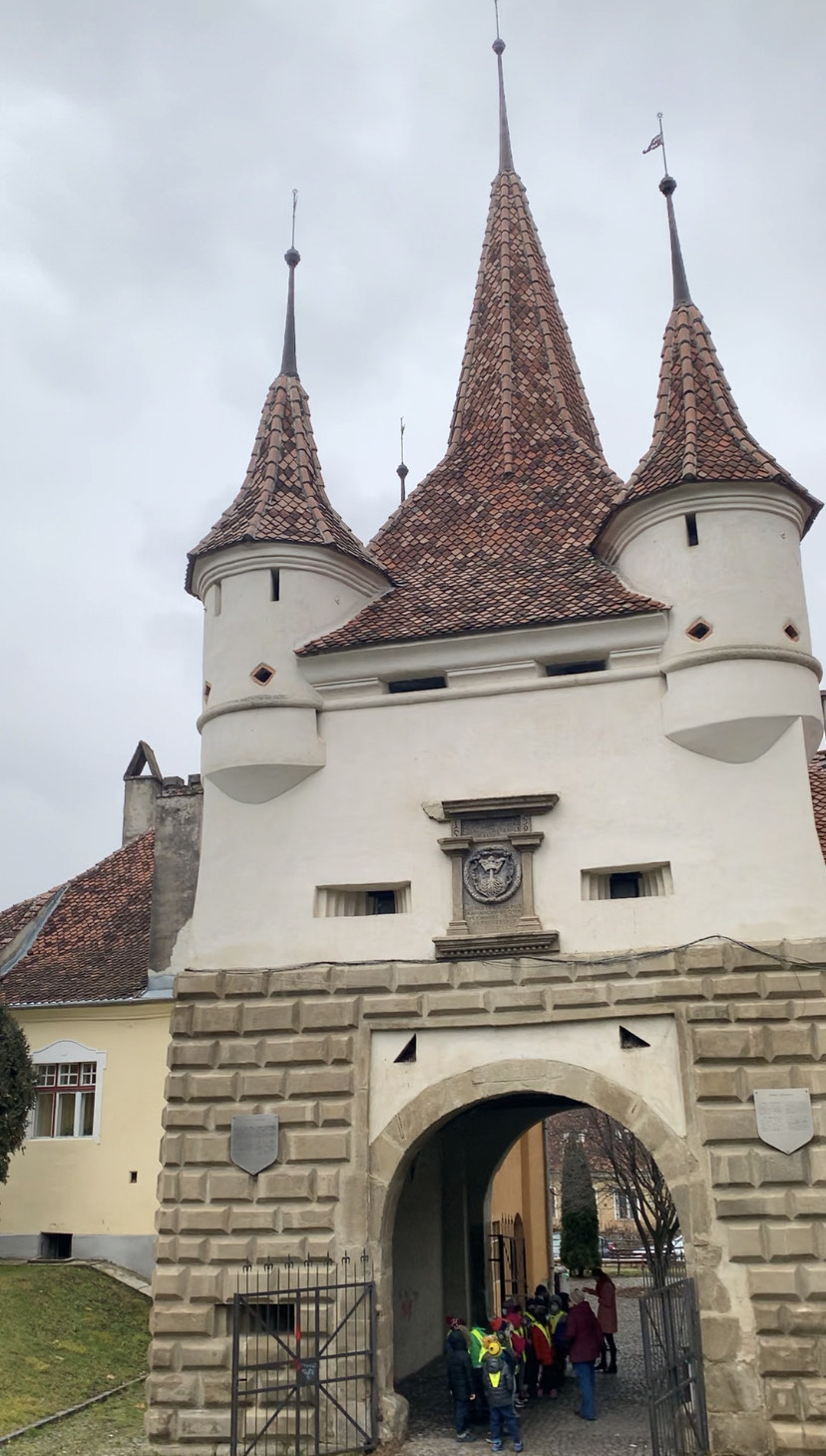
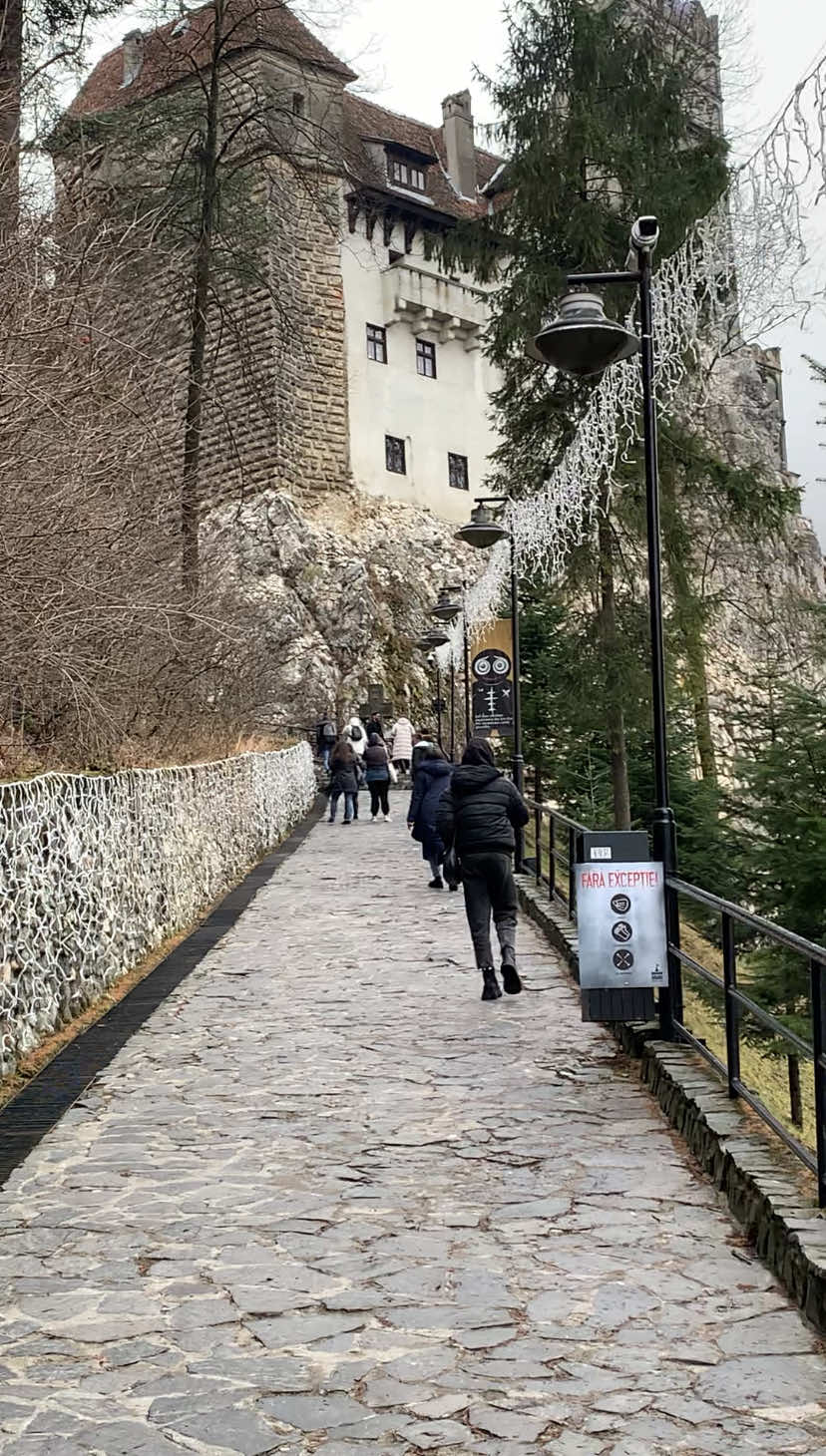
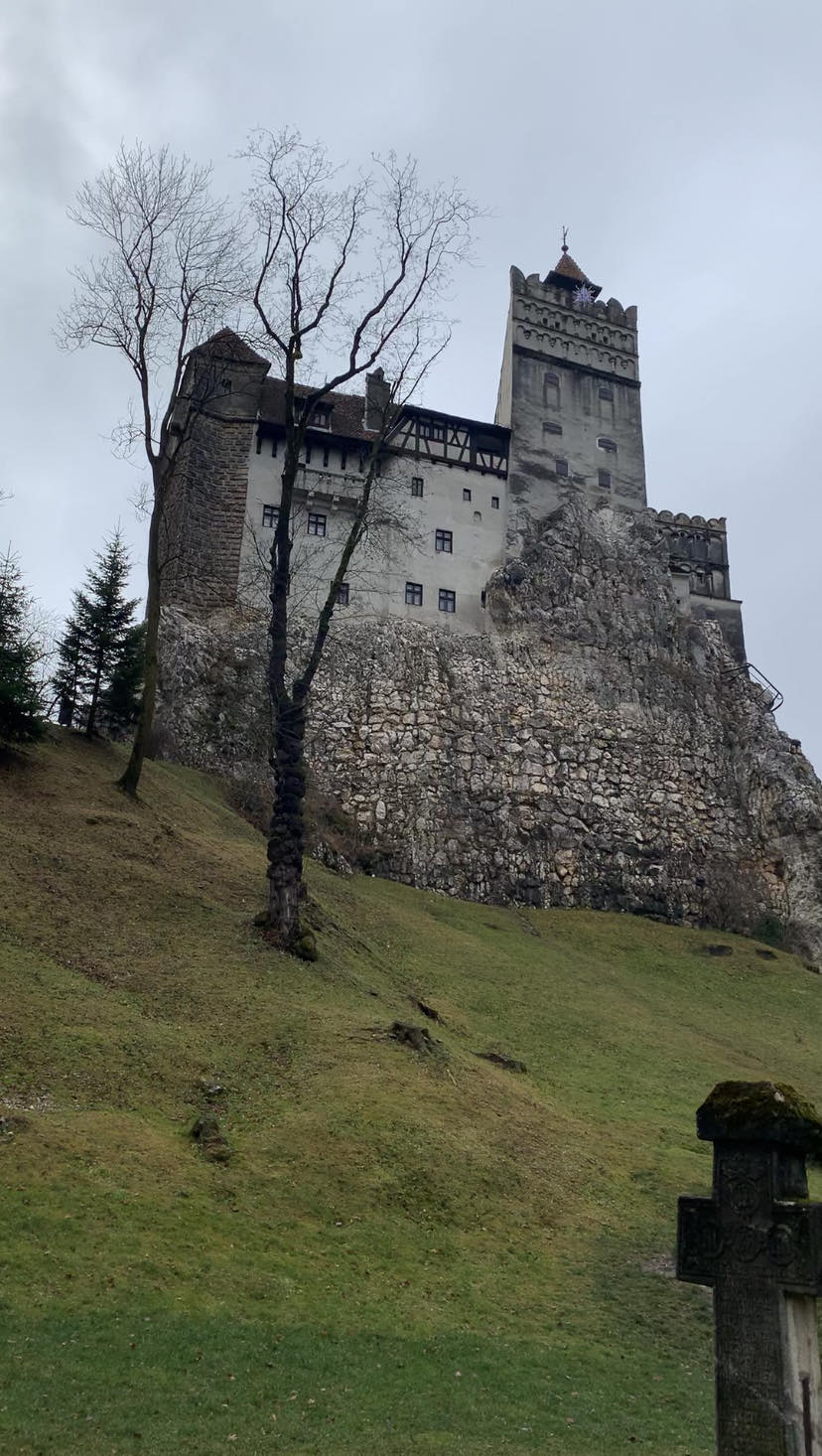
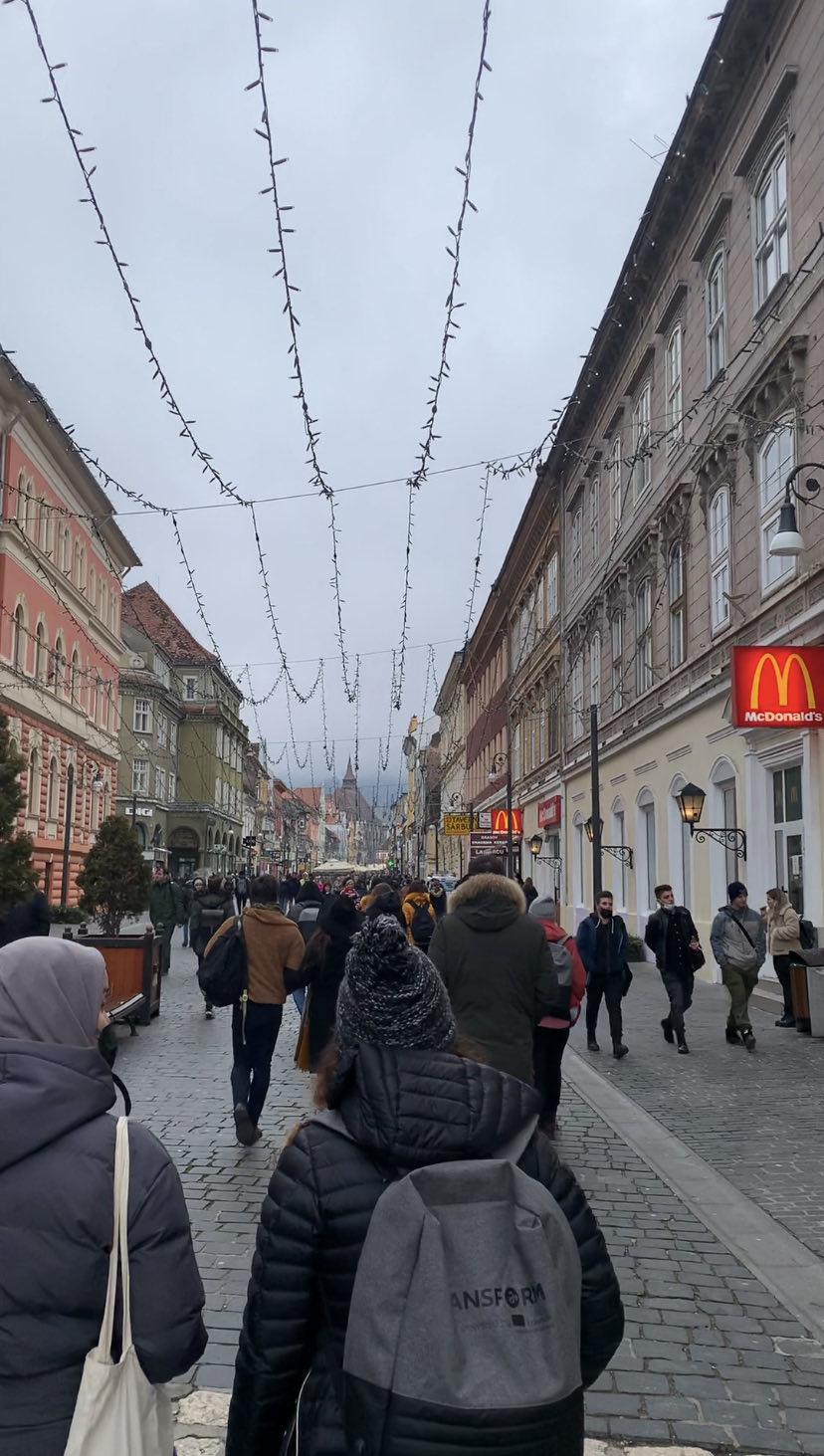
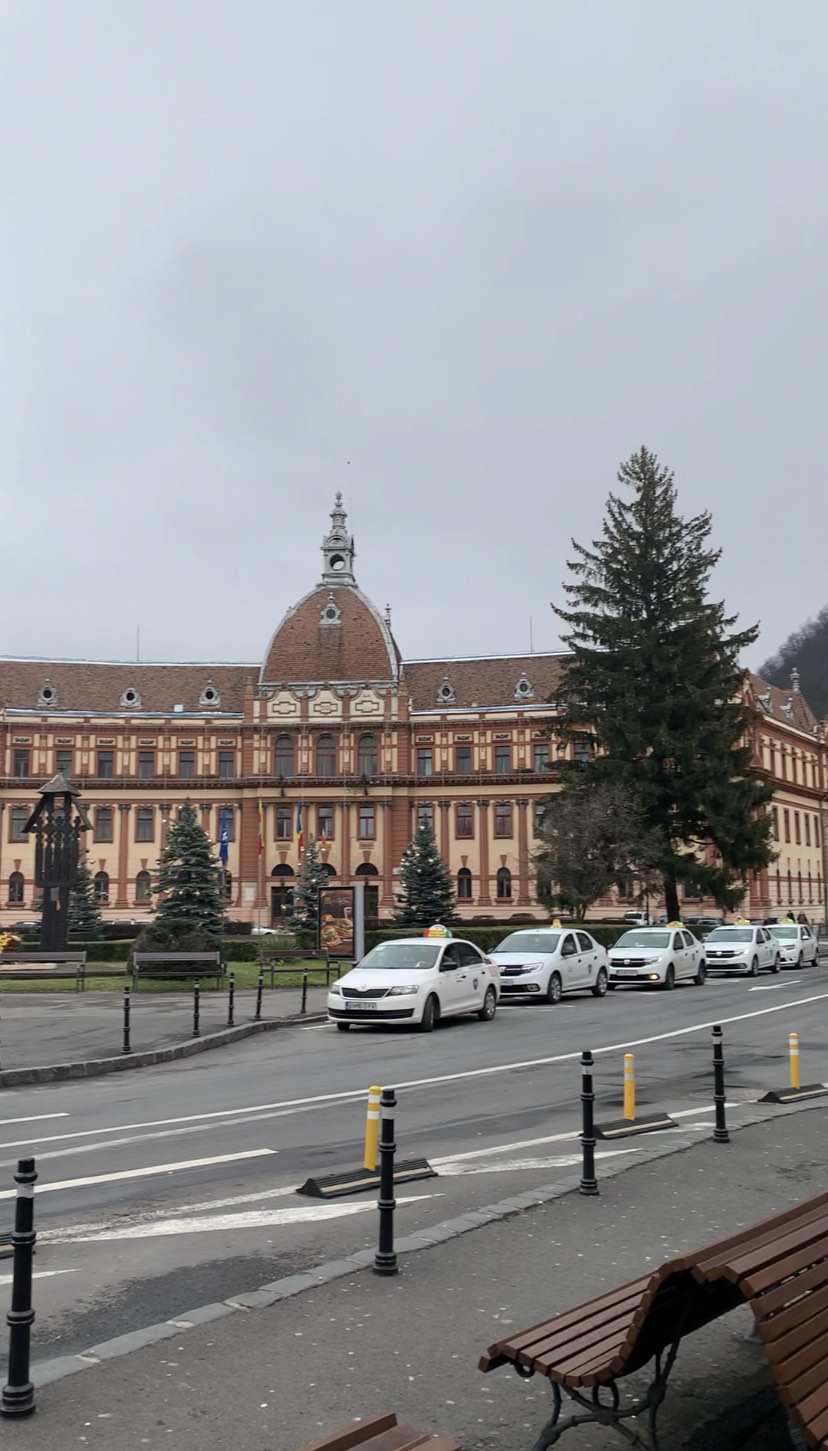
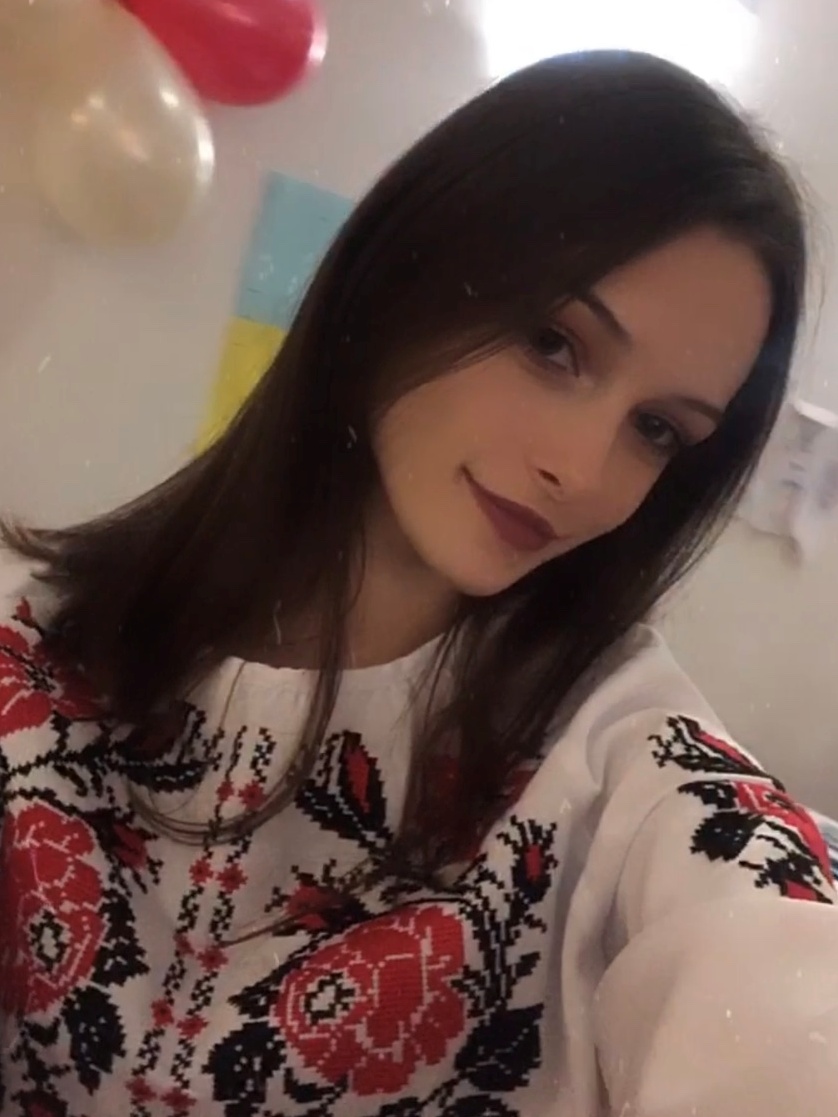 Sofiia Panchuk:
Sofiia Panchuk:
Hello, I am Sonya and this year I was the participant in the project "Bridges". It was my first project and my emotions were mixed. Firstly, it was difficult to perceive all the information you hadn't even thought or knew before. It was hard to understand the meaning of some definitions and expressions. But the TEAM always gave me a helping hand. I was not afraid to ask someone for some help, because everyone was ready to support. The work was interesting intensive. Also I want to express my satisfaction about "energizers". Those were many different interesting activities to cheer up and adjust to further work. Some of them were : " Change your place if it concerns you", " Hi Ha Ho", "Zombie". But my favorite activity is "Grab the yellow marker first". I liked the fact that playing you need not only to show your skills in sports but also the ability to work in a team, quickly signaling to others that yellow marker is in Victor's hand by shaking their hand. And also I prefer the fact that during the sessions anyone could say "basinga" and every participant had to get up and look for a new and comfortable place to listen to the information. I would like to thank you for the opportunity to take part in this project, as well as for the support, understanding and friendly atmosphere among all. I hope this is not the last project I take part in and it would be nice to meet my new friends as soon as possible.
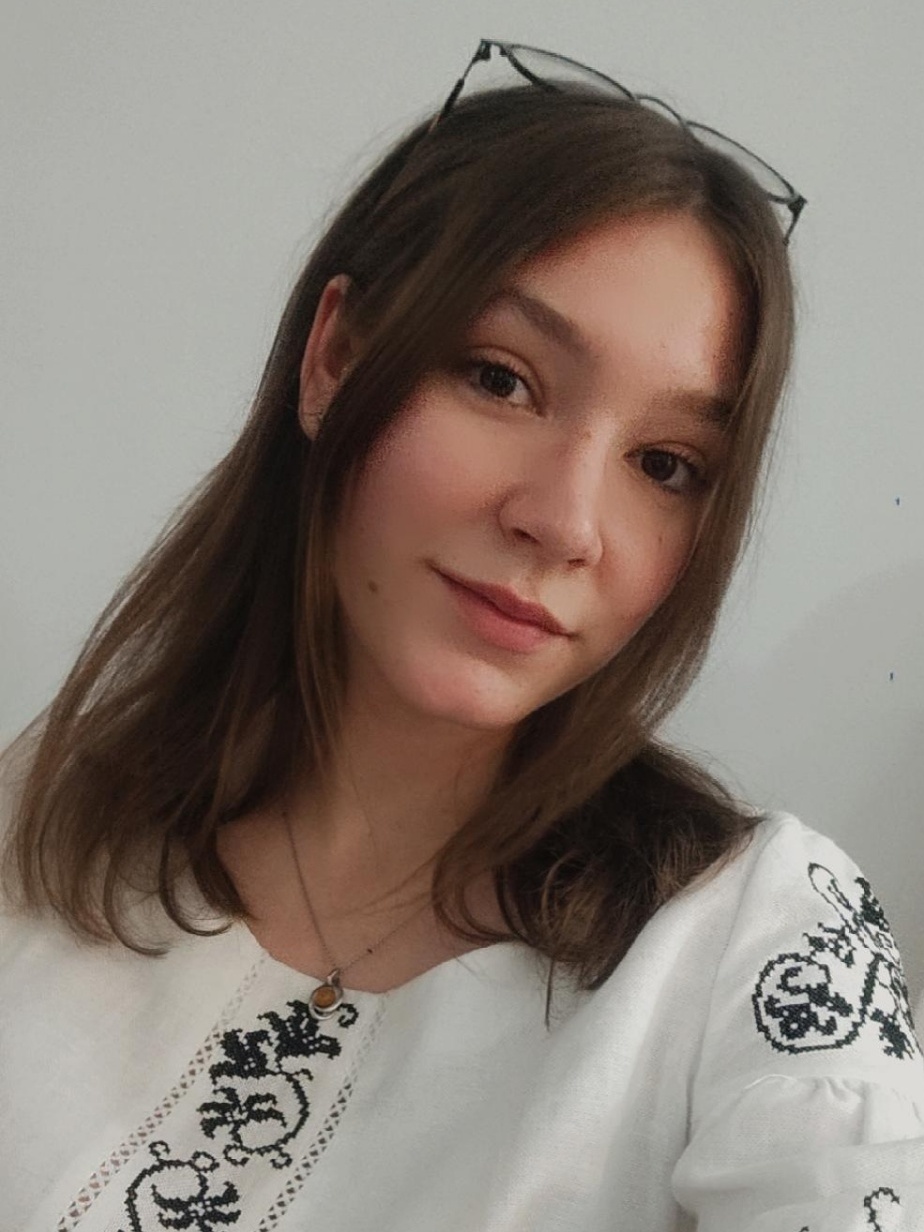 Varvara Bilousova:
Varvara Bilousova:
I am very pleased with the project. I met a lot of new people, I enjoyed that very warm atmosphere of hospitality. No wander, I learned a lot of new information on the suggested topics and met new friends. Completely new event for me was World Café. It is a method of organizing a meeting that involves a significant number of participants on predetermined topics and provides an opportunity for each participant to speak up. During February- March I want to participate in conducting a number of sessions to prepare a World Café meeting in my community.
Video:
Laying the groundwork How to Plan the Development of a Youth Strategy. Ongoing consultation: how to conduct a research and consultation methods World Café Participatory Youth Policy: how to involve stakeholders, at all stages of the policy cycle. The groups worked out the topics and thought about the questions they may answer while solving the problems. It was involving and exciting for the young people. The next session during the day was devoted to monitoring, evaluating and learning which developed the skills of evaluating the action plans and the importance of this activity for the success of the matter. Every day the international groups of participants have competitions Top 10. The quizzes help know better each members of the group and practice English. During the session The Level of Participation in Communities give the chance to express everyone’s opinion. To relax during the training the energizers are of great support. In the evening the participants enjoyed Intercultural Evening event with the presentation of culture from Armenia, Turkey, Russia, Italy and Greece.
The project BRIDGES started Dec 6, 2021 in Bacau, Romania and 12 countries of Europe presented their 27 participants. During the first meeting the participants enjoyed the Timetable Presentation after Warming up activities. Teambuilding ensured getting involved in establishing the code of conduct to be sure that all participants involved are assuming it (including COVID-19 special procedures). Expectations, contributions, fears and group rules were discussed during interesting and meaningful activities. Formal, Non-formal and Informal education was mentioned. Informal education Erasmus+ Youth Pass Certificate was presented through group work.

























Youth rights, democracy values, existing legal instruments were of much interest for the participants as it concerns their everyday life. To find out how much they are aware of European and other International policy frameworks the organizers conducted group work with some interesting tasks to fulfill. What is youth policy and life cycle, principles and quality standards of a youth policy were presented on the group charts. The organizer presented Youth power for youth rights. Andrea explained the topic Youth participation in the form of the flower with the key words on the chart. What is a youth strategy and why do young people need a youth strategy was discussed in the international groups. In the evening the participants enjoyed Intercultural Evening event with the presentation of culture from Ukraine.










